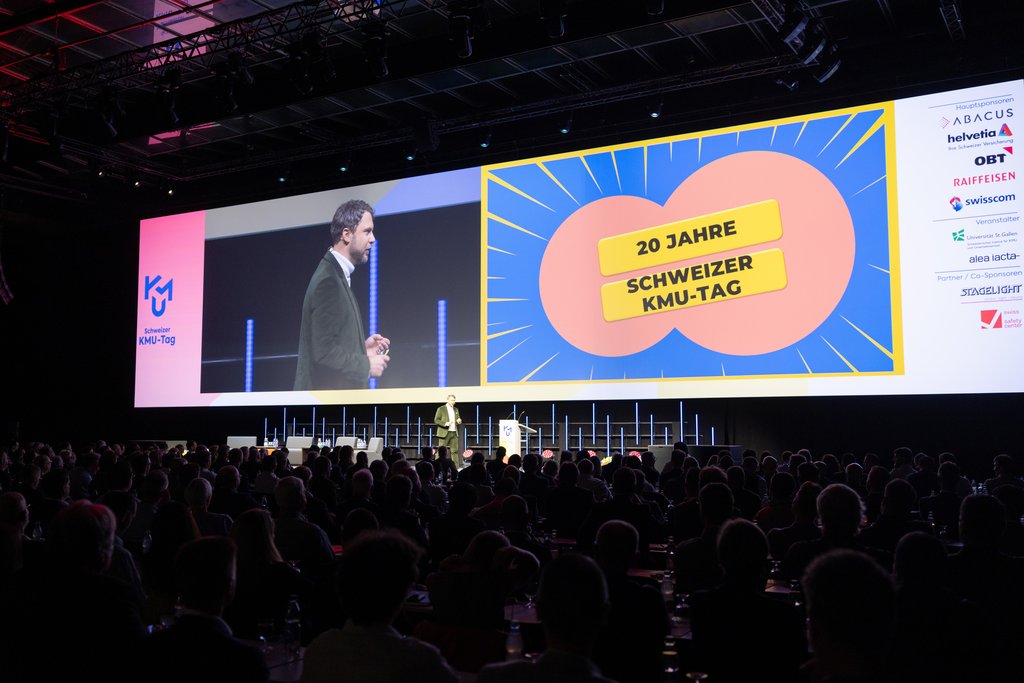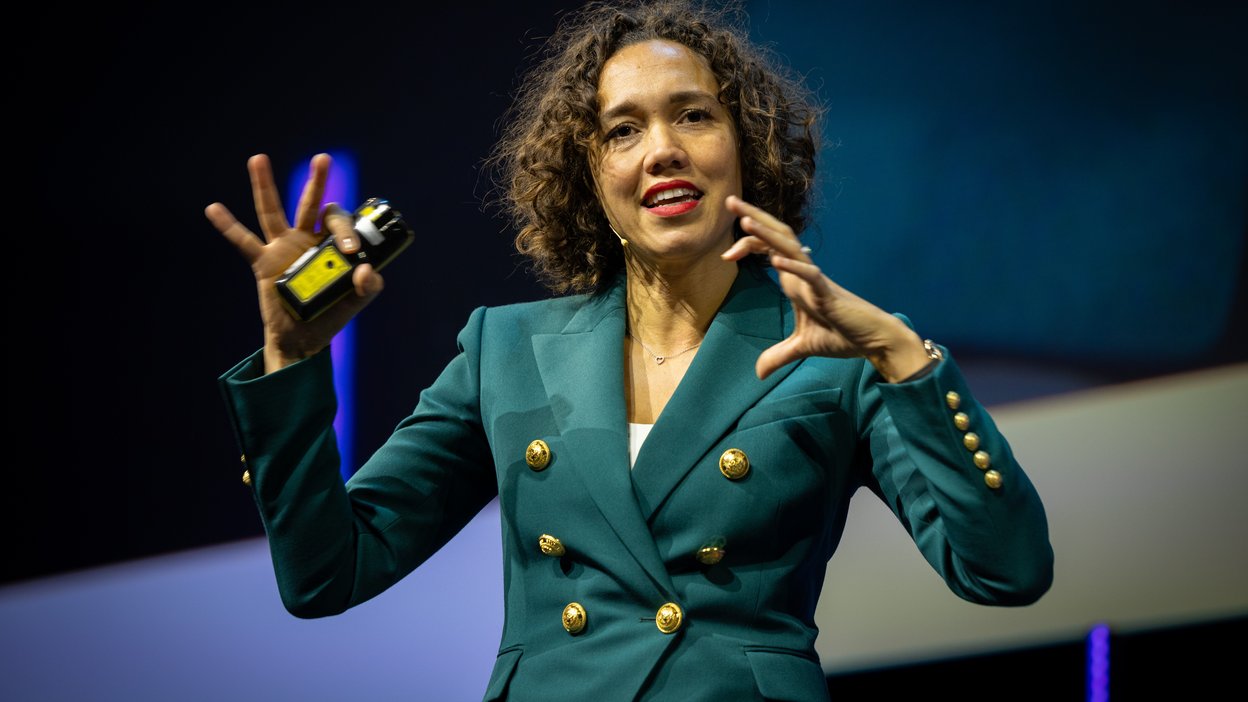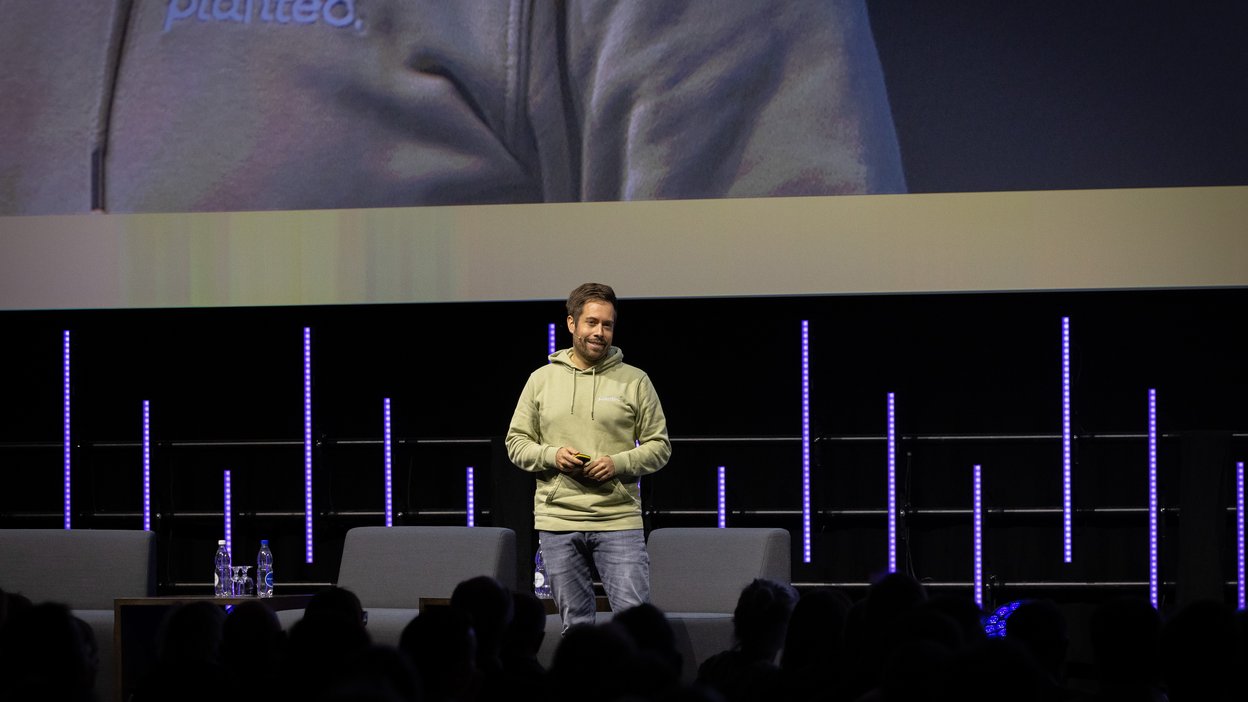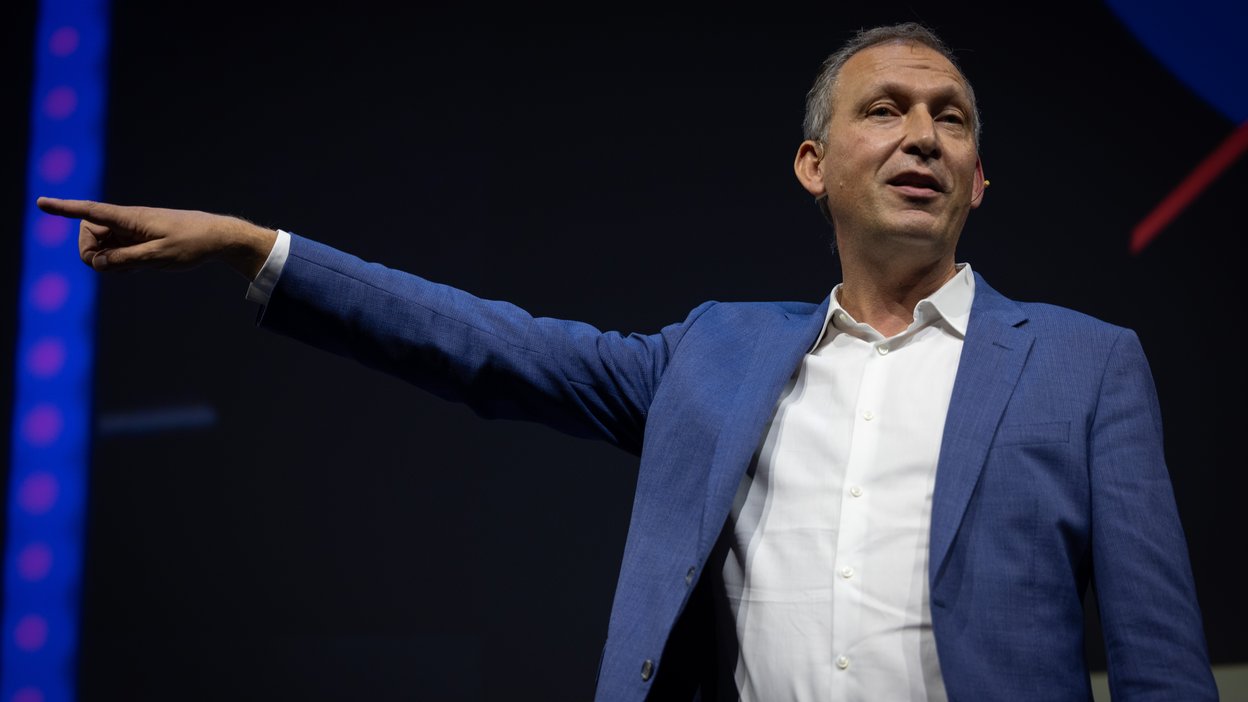Background - 30.10.2023 - 09:45
20th SME Day in St.Gallen: Turning negative momentum into an opportunity
"SMEs and Momentum" was the title of the 20th SME Day in St.Gallen. Presentations and discussions showed that even negative momentum can be used in a positive way.

20th SME Day in St.Gallen: Turning negative momentum into an opportunity
Hosted by Dr. Tobias Wolf, the founder of Online Doctor and a researcher at the Swiss Institute of Small Business and Entrepreneurship, the event welcomed 1200 participants with an insightful look back at the history of the SME Day. Wolf used illustrative examples, such as electric scooters and QR codes, to underscore the critical role of timing in the success of products and technologies.
After the introduction, the President of the University of St.Gallen, Prof. Bernhard Ehrenzeller, extended his congratulations on the anniversary of the event and characterized the theme "Momentum" as "inspiring" due to its inherent ambiguity. Prof. Ehrenzeller also emphasized the vital role that SMEs play in Switzerland's economic dynamism, with 99 percent of Swiss companies falling into this category.
Use AI. Now!
The conference was moderated by SRF presenter Arthur Honegger, who introduced the first speaker, Nicole Büttner, a tech enthusiast and the CEO of Merantix Momentum, who happens to be a graduate of HSG. Nicole Büttner expressed her astonishment at the prevalence of SMEs in niche markets that have achieved global dominance. However, she also noted that the era of artificial intelligence (AI) presents a new paradigm of generalization that challenges such specialization. She lauded generative AI as a "game changer," particularly in functions like HR, sales, marketing, and finance, where it provides a substantial boost. Nicole encouraged the audience to explore these tools and highlighted the importance of employee involvement and transparent communication for successful AI implementation. She emphasized that AI is a co-pilot, not an autopilot, underlining its role as a supportive tool for humans.
Lessons from football
Dr. Bernhard Heusler, the former president of FC Basel, shared insights on leadership, stressing the role of leaders as being there for their teams. He highlighted the evolving nature of teams, which are now more heterogeneous, multicultural, multilingual, and individual. In team composition, he emphasized the significance of attitude over skills. Dr. Heusler acknowledged that success can be a double-edged sword, with the pressure to succeed potentially stifling self-motivation. He recommended building trust rather than pressure as a manager and saw negative momentum as an opportunity for change. He cited lessons learned from the 'shame of Basel' in 2006 as pivotal in the subsequent eight league titles achieved by FC Basel.
The public goes for meatless meat
The "Inspiration Session" featured three start-ups pitching to the audience. Philomena Schwab, known for developing successful video games at Stray Fawn Studios, discussed the studio's approach to indie game development and their focus on early player involvement and education. Pascal Bieri of Planted presented the company's mission to revolutionize meat consumption with plant-based alternatives. Melusine Bliesener and Katharina Lehmkuhl, representing the HSG spin-off Papydo, introduced sustainable packaging paper made from grass, envisioning a world without waste in gift wrapping.
At the end of 2022, they received some initial external funding and a lot of attention on Die Höhle der Löwen. But the audience voted Planted the most promising start-up. As a prize, Pascal Bieri received free participation in the KMU-HSG leadership seminar.
Momentum from the pandemic
During the "SME Talk", Arthur Honegger got to the heart of an entrepreneur and two companies: the focus was on dealing with change. Interestingly, the pandemic had a positive impact on all three: Zollinger Bio, the seed company run by HSG graduate Til Zollinger and his three brothers, saw demand temporarily double. "People were at home and needed a hobby. But it took a lot of effort to keep up with the demand. The same goes for Tanja Zimmermann-Burgerstein (Burgerstein Vitamins) and her team. After the pandemic, she says, awareness of personal health has risen sharply. "We made some strategically correct decisions in advance and have grown like crazy". For Claudio Minder, co-CEO of Kybun Joya Swiss, the pandemic ultimately had a positive impact: With sales down by around 25 percent, he says, they started thinking about distribution. An important customer, the shoe retailer, was slowly dying out. That's why they strengthened their online presence and developed a franchise model, which is now paying off.
Change is a law of nature
The keynote speech by Thomas Zurbuchen, former NASA science director, was the final highlight of the event. Zurbuchen drew parallels between the challenges faced by NASA and those encountered by SMEs. He stressed the importance of teamwork and leadership and encouraged leaders to be open to questions and feedback, considering them as valuable "gifts." Zurbuchen advocated for experimentation, active communication about failures, and the acceptance of change as a natural law. He underscored that decisions are never 100 percent right and that embracing uncertainty is key to progress.
The event concluded on a note of inspiration, encouraging SMEs to adapt and evolve in a changing world.


